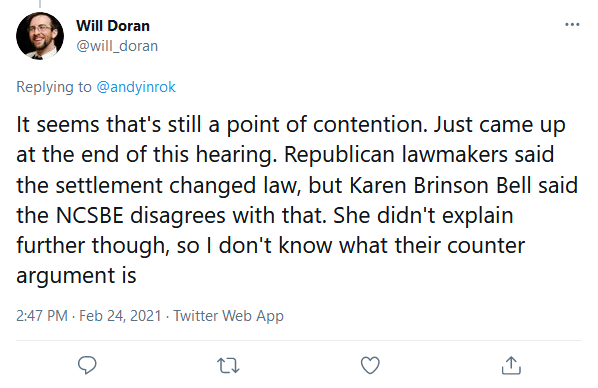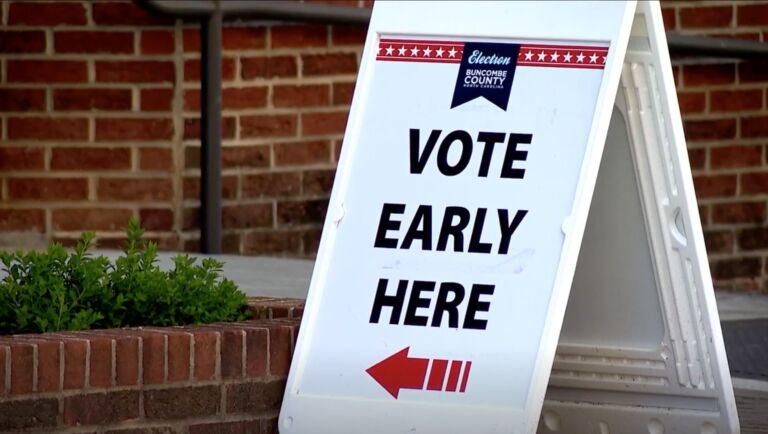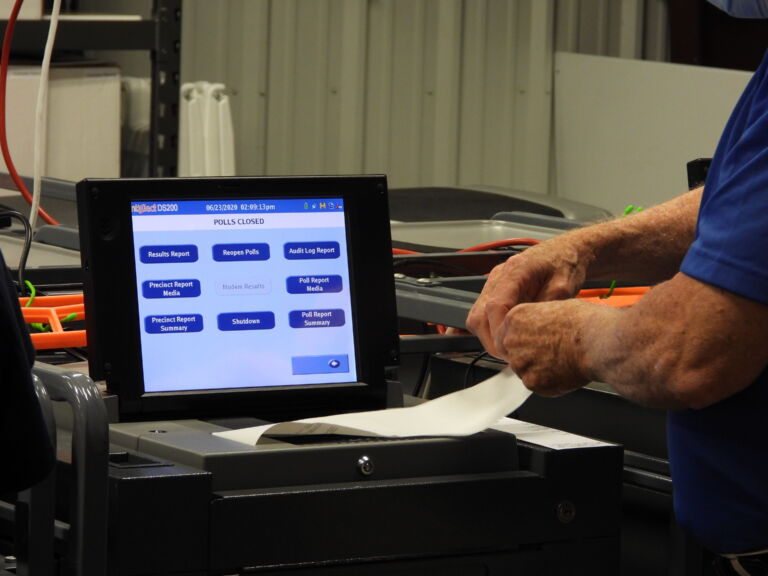NC State Board of Elections (SBE) Executive Director Karen Brinson Bell spoke to the NC House Election Law and Campaign Finance Reform committee yesterday.
While the main topics were a review of the 2020 election and her recommendation that municipal elections scheduled for this year be postponed until next year, there was also a contentious discussion over Bell’s collusive lawsuit settlement with Gov. Roy Cooper’s former campaign attorney Marc Elias last September. As seen in this Twitter exchange I had with News & Observer reporter Will Doran, the disagreement was over whether or not Bell altered election law in her settlement with Elias.

To help resolve this disagreement, let’s take a look at the press release from the SBE announcing the settlement and examine two parts of election law Bell altered as part of her agreement with Elias.
Here is the first change Bell made as a result of the settlement (September 22, 2020, SBE media release):
The State Board will allow a voter whose witness does not fill out required fields on the envelope to correct that mistake through an affidavit of the voter.
That altered GS 163-231(a), which requires witnesses (one witness for the 2020 election) to “sign the application and certificate as witnesses and to indicate those persons’ addresses” with no exceptions.
As I detailed last October, the SBE announced the witness cure process as part of the announcement of Bell’s settlement with Elias. When called out on that claim by the Trump campaign, they switched to claim that the witness cure process was really an attempt to be “consistent” with a federal court injunction made the previous August. Judge William Osteen, who issued the injunction, was having none of that and made it clear that “this court does not find Memo 2020-19 ‘consistent'” with his injunction. That attempted change in election law was eventually overturned by Osteen and the law, as written, was operative for the election. (Somebody at the SBE should be fired for those machinations alone.)
Here is another change Bell made as a result of her settlement with Cooper’s former campaign attorney (September 22, 2020, SBE media release):
The joint motion, if approved by the court, would also extend the date that county boards will accept ballots by mail to 5 p.m. Thursday, November 12, if they are postmarked on or before Election Day.
The settlement extended the deadline to nine days after the election. That altered GS 163-231(b)(2)b (scroll down), which requires that absentee ballots “not later than three days after the election.”
Judge Osteen ruled that parts of Bell’s settlement with Elias violated the 14th Amendment to the US Constitution and the “unequal treatment of voters and the resulting Equal Protection violations as found herein should be enjoined.” However, he declined to do so because he believed that he did not have the authority to change election laws so close to the 2020 election.
So, Bell’s settlement with Elias altered at least two sections of North Carolina’s election law. Her claim that she did not alter election laws contradicts reality.


